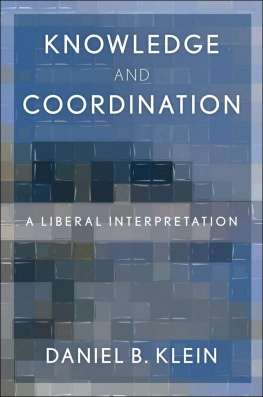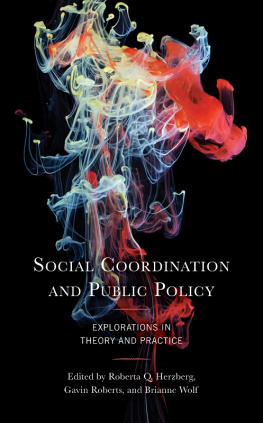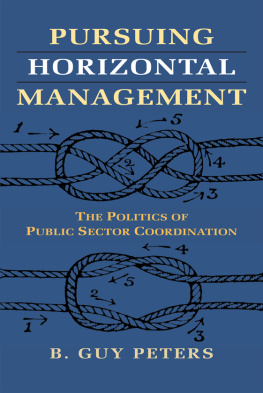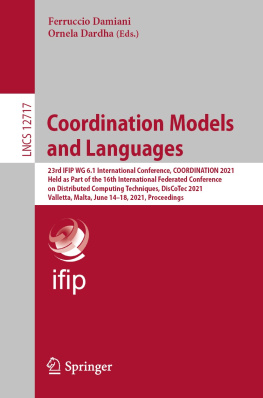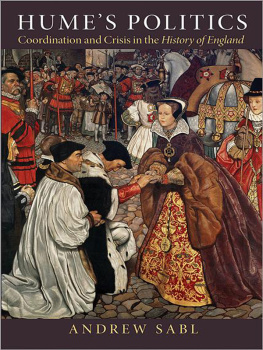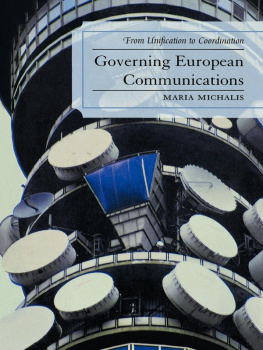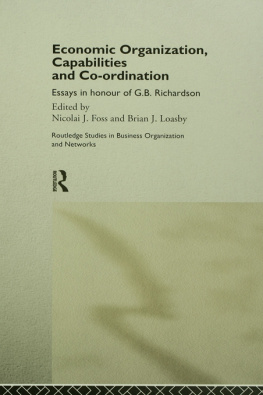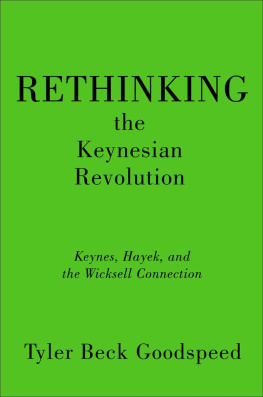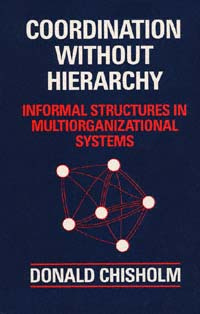Knowledge and Coordination
Knowledge and Coordination
A Liberal Interpretation

Daniel B. Klein


Oxford University Press, Inc., publishes works that further Oxford Universitys objective of excellence in research, scholarship, and education.
Oxford New York
Auckland Cape Town Dar es Salaam Hong Kong Karachi
Kuala Lumpur Madrid Melbourne Mexico City Nairobi
New Delhi Shanghai Taipei Toronto
With offices in
Argentina Austria Brazil Chile Czech Republic France Greece
Guatemala Hungary Italy Japan Poland Portugal Singapore
South Korea Switzerland Thailand Turkey Ukraine Vietnam
Copyright 2012 by Oxford University Press, Inc.
Published by Oxford University Press, Inc.
198 Madison Avenue, New York, New York 10016
www.oup.com
Oxford is a registered trademark of Oxford University Press
All rights reserved. No part of this publication may be reproduced, stored in a retrieval system, or transmitted, in any form or by any means, electronic, mechanical, photocopying, recording, or otherwise, without the prior permission of Oxford University Press.
Library of Congress Cataloging-in-Publication Data
Klein, Daniel B.
Knowledge and coordination: a liberal interpretation / Daniel B. Klein.
p. cm.
Includes bibliographical references and index.
ISBN 9780199794126 (cloth : alk. paper)
1. Liberalism. 2. Economics. I. Title.
HB95.K53 2011
330.1dc22
2011003596
1 3 5 7 9 8 6 4 2
Printed in the United States of America
on acid-free paper
To Beckski
Somewhere in Holland there lived a learned man, he was an orientalist and was married. One day he did not come to the midday meal, although he was called. His wife waits longingly, looking at the food, and the longer this lasts the less she can explain his failure to appear. Finally she resolves to go over to his room and exhort him to come. There he sits alone in his work-room, there is nobody with him. He is absorbed in his oriental studies. I can picture it to myself. She has bent over him, laid her arm about his shoulders, peered down at the book, thereupon looked at him and said, Dear friend, why do you not come over to eat? The learned man perhaps has hardly had time to take account of what was said, but looking at his wife he presumably replied, Well, my girl, there can be no question of dinner, here is a vocalization I have never seen before. I have often seen the passage quoted, but never like this, and yet my edition is an excellent Dutch edition. Look at this dot here! It is enough to drive one mad. I can imagine that his wife looked at him, half-smiling, half-deprecating that such a little dot should disturb the domestic order, and the report recounts that she replied, Is that anything to take so much to heart? It is not worth wasting ones breath on it. No sooner said than done. She blows, and behold the vocalization disappears, for this remarkable dot was a grain of snuff. Joyfully the scholar hastens to the dinner table, joyful at the fact that the vocalization had disappeared, still more joyful in his wife.
Sren Kierkegaard (1978: 126)
CONTENTS
In 1917 or so, the pre-eminent English economist Alfred Marshall wrote the following words intended for publication:
But the more I studied economic science, the smaller appeared the knowledge which I had of it, in proportion to the knowledge that I needed; and now, at the end of nearly half a century of almost exclusive study of it, I am conscious of more ignorance of it than I was at the beginning of the study.
(qtd. in Keynes 1951: 138)
Marshall tossed the sheet with those words into the wastepaper basket, where it was retrieved by Mrs. Marshall. It remained unpublished. Perhaps Marshall had the impulse to confess his ignorance of economic science as a way of highlighting something central to economic wisdom, but he lost his nerve.
This book dwells in the richness of knowledge. It dwells in the significance of that richness for actors within economic processes. It also dwells in the significance of that richness for the aspirations of the analyst to know economic processes.
As students and scholars, we read what others write about the economy. We listen to what others say. But is this like reading descriptions of how to ride a bicycle? Do we know the economy itself?
The economy is a metaphor of organizational management, and yet no one supervises the organization. Still, we somehow speak from a perspective of some imagined beholder of it all. What pleases that beholder? What is the beholders objective function?
Friedrich Hayek spoke of the division of knowledge, or dispersed knowledge. But even these expressions may not go far enough. Knowledge is not merely divided, like a sandwich cut down the middle, or dispersed, like a crowd formerly amassed, but disjointed, living and moving in separate interpretive frames, taunting the will to know.
Theorists often make a particular move in their descriptions of things so as to ensure that interpretation is final and symmetric, a move that also makes it common to the agents existing within the description. The move is to assume that the working interpretation is common knowledge (Lewis 1969: 52f; Chwe 2001).
When teaching a course in game theory, in a classroom of students seated in an inward-looking circle, I demonstrated the idea by holding up a large blue marker and announcing: I am holding up a blue marker. It was common knowledge that I had held up a blue marker.
What made it common knowledge was not that everyone knew I had held up a marker, but also that everyone knew that everyone knew, and everyone knew that everyone knew that everyone knew, and so on.
The higher-order conditions matter: I know and you know that we both would prefer to meet at the Japanese restaurant, but if I think you think I prefer the Thai place, then maybe I head there.
When we play poker, it is common knowledge that we look at our own hand and not at one anothers. That which is common knowledge might be a condition of asymmetric information.
To make things rigorous, game theorists and economic equilibrium model builders assume that conditions of the model are common knowledge to the agents within the model. That is mainly how theorizing goes in professional economics. The common-knowledge precept flattens knowledge down to information. It is flattering to the theorist and seductive to others.
But maybe the common knowledge assumption is misplaced. Society is not a set of agents gathered in an inward-looking circle. If the economy is a cosmos of disjointed knowledge, involving asymmetric interpretations, maybe an idiom rooted in common-knowledge precepts and instincts will neglect important facets of the problem. When Adam Smith (TMS: 234) remarked on the planners hubris, he pointed out that the actual human being on the ground has not only information and circumstances of its own, but a principle of motion of its own, altogether different from that which the legislature might chuse to impress upon it.
Not that people are purely individual, or that the individual is sacred. Smith (134) said that the strange applications of some clerics have alienated many people altogether from the contemplation of higher aspirations and more sacred virtues. Likewise, strange applications have alienated many people from contemplation of the primacy of the social good. Political individualists sometimes fall into making their ethics individualistic. It was not by downgrading the social good that Adam Smith authorized liberal policy and the pursuit of honest profit.
Next page
